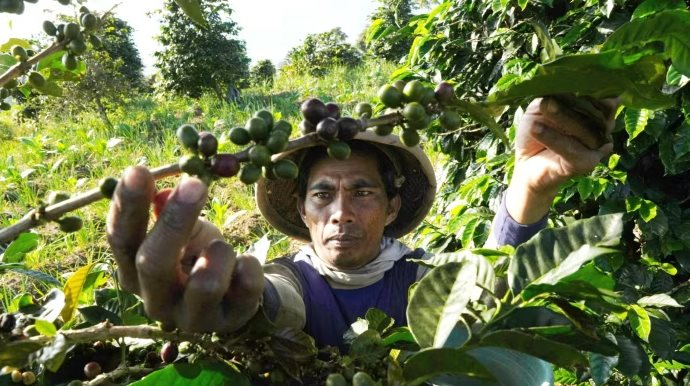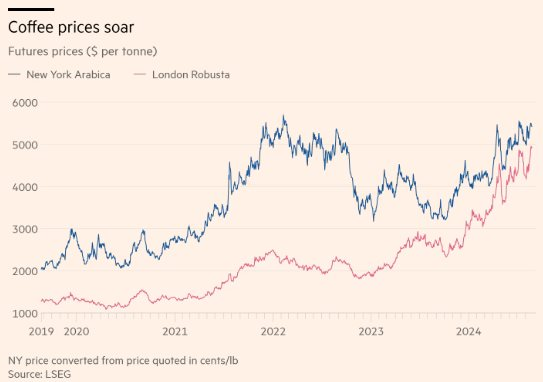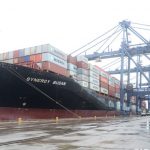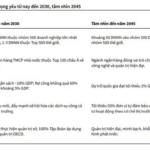
Illustration photo
According to the Financial Times, global coffee prices have soared to record highs due to adverse weather conditions disrupting crops, forcing manufacturers to blend in cheaper coffee varieties and passing on higher costs to consumers.
Prices of both Robusta beans – commonly used in instant coffee – and higher-quality Arabica coffee have surged in recent months. The price of the London-traded Robusta coffee futures, the global benchmark, hit a record high of $4,971 per ton last week, while New York-traded Arabica coffee futures rose to $2.49 per lb, nearing a multi-decade high.

Coffee prices have been on a consistent upward trend lately. Source: FT
Steve Butler, co-founder of ChAI, an AI-powered commodity price forecasting company, stated that “prices may not have peaked yet.”
A recent cold snap in Brazil, which accounts for about a third of global coffee production with 70% of that being Arabica, has raised concerns about supply shortages. The freezing weather in Brazil, combined with drought conditions in Vietnam, the world’s largest producer of Robusta coffee, has pushed the global coffee supply into a deficit for the fourth consecutive year.
Increasing transportation costs are also putting pressure on the market. The conflict in the Red Sea since November 2023 has forced ships traveling between Asia and Europe to take a longer route around the Cape of Good Hope instead of passing through the Suez Canal.
In July, Anna Manz, CFO of Nestlé, shared with investors that input costs from both coffee and cocoa would pressure the food giant’s profit margins in the coming six months.
These costs are also being passed on to consumers. In Italy, coffee drinkers can no longer enjoy their morning espresso at the traditional price of €1. According to Assoutenti, the average price across Italian cities has increased by 15% since 2021 to €1.20 this year.
Consumers may also notice a change in taste. As Arabica coffee prices soared from mid-2021 to early 2023, roasters started blending in cheaper coffee varieties. Charles Hart, senior commodities analyst at BMI, stated that “inventories in Vietnam and Brazil are declining, thus providing a basis for coffee price increases in 2024.”
Currently, facing escalating costs for both cocoa and coffee beans, roasters are trying to protect their shrinking profit margins by sourcing Arabica coffee from cheaper producers, mainly Brazil.
Source: FT
Business proposes shipping companies to collaborate in boosting import-export.
Amid the tension in the Red Sea, the Ministry of Industry and Trade has urged shipping companies to maintain routes and bring empty containers back to ensure smooth import and export activities while complying with regulations on freight rates and surcharges.
Save millions of Vietnamese dong every month with BE
BE’s new Expense Management feature combined with the Saving Package empowers Vietnamese individuals to take more control over their expenses and personal finances.



















